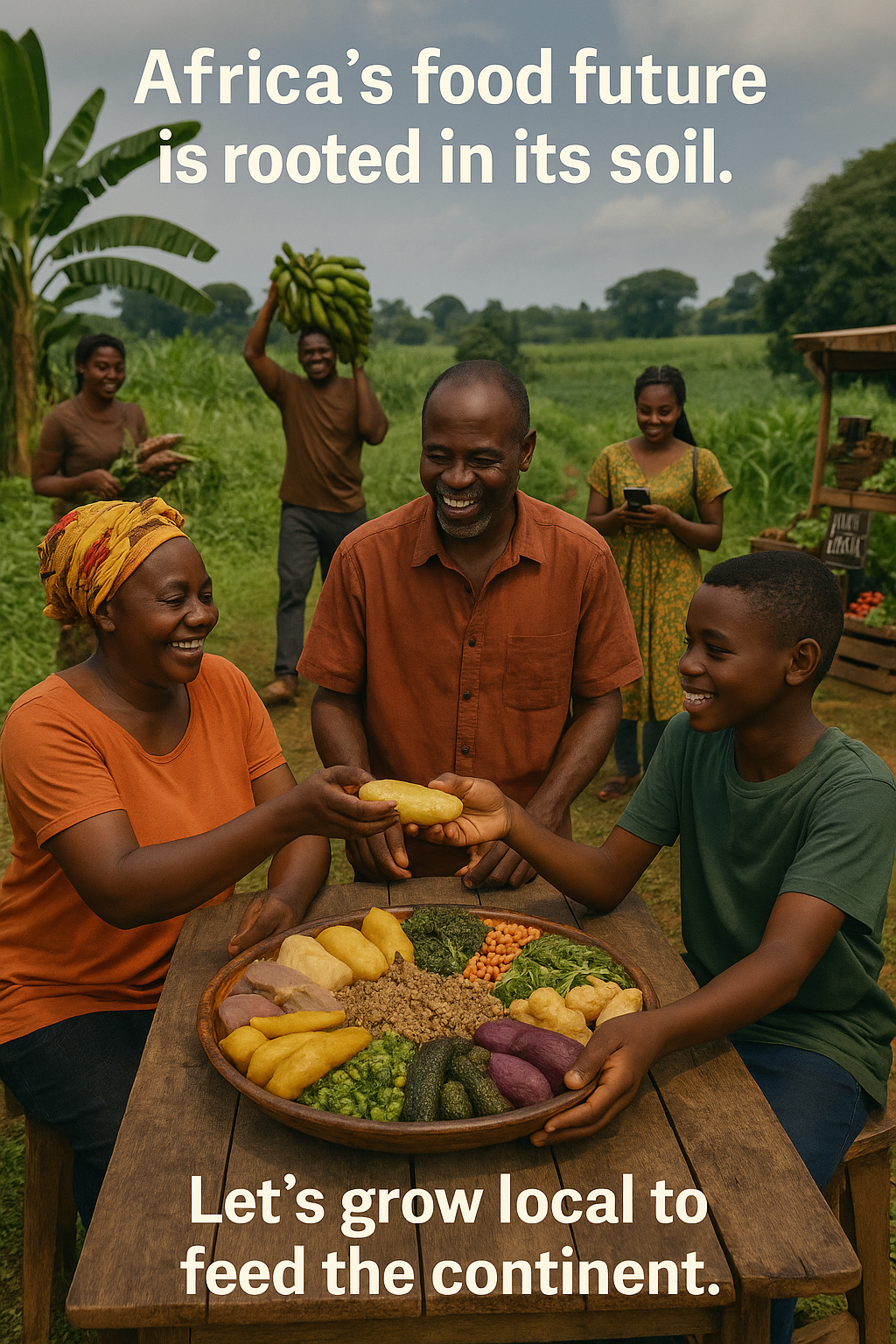Food security remains a pressing challenge in Africa, where millions still lack regular access to sufficient, nutritious, and culturally appropriate food. This is particularly paradoxical, given the continent’s vast agricultural potential—rich soils, diverse ecosystems, and a predominantly young and dynamic population. Despite these assets, Africa remains heavily dependent on food imports, especially for staples such as rice, wheat, and powdered milk. In response to this disconnect, boosting local food crop production—growing food primarily for national and community consumption—emerges as a crucial strategy for achieving sustainable food security.
According to the FAO, food security exists when all individuals, at all times, have physical, social, and economic access to enough safe and nutritious food to meet their dietary needs and preferences. In Africa, this security is undermined by multiple factors: overreliance on imports, the impacts of climate change, recurring conflicts, insufficient rural infrastructure, and the erosion of traditional food systems in favor of less nutritious, imported alternatives.
Yet Africa abounds in underutilized, indigenous crops that are rich in nutritional value and deeply rooted in local culinary traditions. Take Gnetum africanum—commonly known as eru or kok—widely consumed in Cameroon and Nigeria but rarely cultivated on a commercial scale. Or fonio, an ancient West African grain prized for its high iron content and digestibility, now in decline. Other overlooked but cherished crops include folong (amaranth leaves), wild yams, purple sweet potatoes, and Bambara groundnuts (voandzou)—often reserved for special occasions due to their rarity.
Revitalizing local food crop production offers multiple benefits: it reduces dependency on volatile global markets, stabilizes food prices, boosts rural employment, and combats poverty. Crops like traditional maize, plantains, cassava, Ndop rice, and leafy greens such as nkui or okok are beloved staples, yet remain underproduced due to limited support. Promoting their cultivation, processing, and commercialization not only meets local demand but also preserves Africa’s rich culinary identity.
To unlock the full potential of local food crops in addressing food insecurity, several strategic actions are necessary:
- Empower smallholder farmers with improved access to quality seeds, training programs, and tailored financing tools.
- Revive and valorize neglected crops through awareness campaigns, nutrition education, and their integration into institutional meal programs (schools, hospitals, etc.).
- Modernize the value chain by supporting local agro-processing (e.g., sweet potato flour, hibiscus juice, plantain chips), investing in packaging and branding, and enhancing market access.
- Leverage digital agriculture via platforms for e-commerce, real-time weather updates, and mobile tools for farm management—especially to engage and retain youth in agriculture.
Africa’s path to food sovereignty lies in rediscovering and scaling what it already knows: local, resilient, and diverse food systems. By investing in the production, valorization, and consumption of indigenous crops, the continent can build a more secure, independent, and nutritionally rich future for all.


Leave a Reply